(A Tribute to Shri Biswanath Mukherjee)
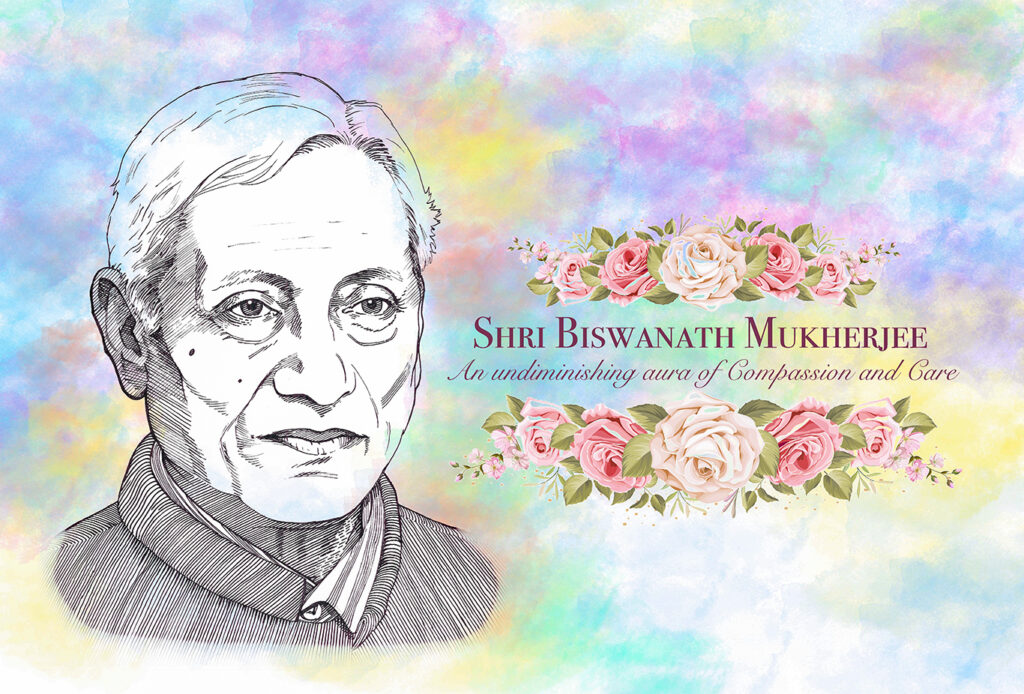
Humans are known to have limited memory; as we move on with our lives, “new” things overcast “old” memories. The journey of life is ever-surprising; we must progress, despite the thin and thick, expected and unexpected, happy and horrid. The transformation of naivety into prudence is not an easy one and can never be accomplished if the “seasoned” refuse to divulge their secrets. No fear, unknown and unforeseen, can withstand the mastery of consummate veterans, but why should they share their hard-earned mantras. The knowledge transfer is made further tricky with a host of psychological issues. What is the need for empathizing beyond professional relationships? The majority doesn’t even want to hear, while a handful sympathize with words (and wither away), but only the exceptional gurus stand by their pupil until the storm has passed. This brief write-up is about such a rare breed, who helped this naïve and uninformed youngster to take on his professional duties in a better way. This is about my first professional philosopher, mentor, father-figure and official boss Shri Biswanath Mukherjee.
My professional life has been pretty straight forward. I joined a maharatna PSU while still in my early 20s, dropping out from a masters program with no industrial exposure. My frame of mind can be best described as shaky, amateurish, with a high amount of fuzziness and a bounty of restless energy. I met Shri Biswanath Mukherjee or simply Mukherjee Sir, for the first time at Delhi headquarters sometime in 2003. Our induction at the corporate office had been part of a management strategy of blending the dynamic young with the seasoned masters. The new assignment set for us was to explore the uncharted and challenging domain of retail power distribution. We were “Garden Fresh” from our colleges after a year of training while the seniors had professional experiences ranging from 20-25 years. This gap, both in terms of age and experience, was becoming a barrier; initially it was intimidating for the freshers like us to even travel in the same lift. We would generally maintain a good distance in and out of the office. But Mukherjee Sir never missed an opportunity to poke us and melt the ice.
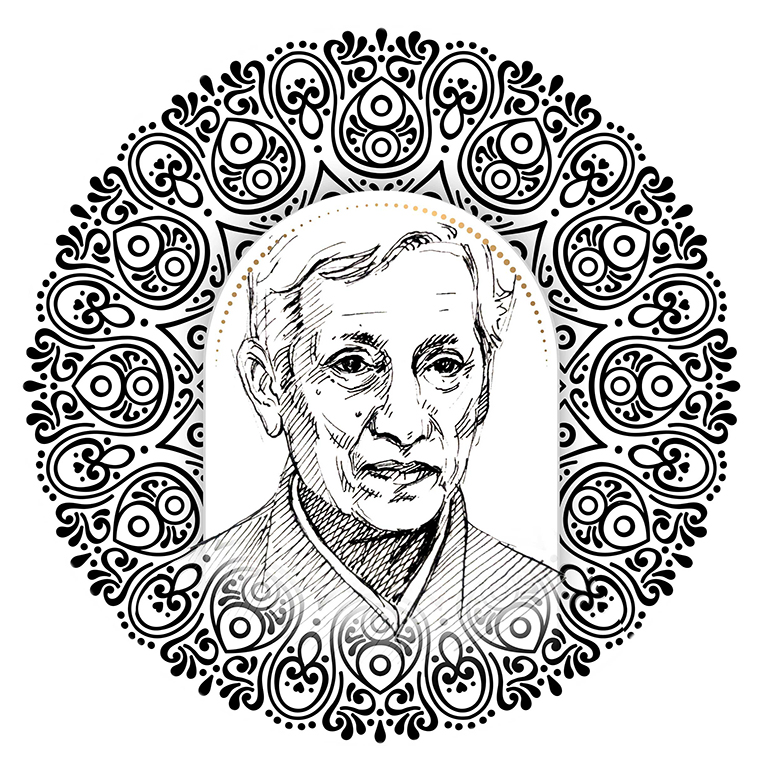
As things progressed, we embarked upon our professional lives, under our mentors. I was fortunate enough to have Mukherjee Sir as my first official boss. Why fortunate? Because he was special and this opinion was unanimous; from the office peon to the CEO, Mukherjee Sir was everyone’s favorite. I was immediately attracted by his balanced demeanor, sensitivity, warmth and open-mindedness. Soon I realized that my mentor is not a “regular” copy but a carefully-crafted rare limited-edition. His understanding of both technical and non-technical matters was deep and nuanced. While others spoke superficially, he had a solid grasp over anything and everything. Even after two decades of professional life, I am still to find a person of his caliber. He was exceptional and I was blessed.
How is a “special edition” different from “regular” run-of-the-mill copies? Regular things are usual, nothing special, straight and predictable. Mukherjee Sir was an antithesis of “regular.” He was never like a boring monotonic officer; he took pains to know not only about the official matters that connected us but also about the well-being and safety of all his subordinates. This humane aspect would surface quite often; he would interact with each one of us inquiring about professional lives. Whether we are able to understand the job technicalities, or are bothered by any other issue – personal or professional – he always gave us a patient hearing and went beyond his responsibilities to take stock of the situation. How often do you find a boss asking his pupil, “It’s getting late, How are you going to travel back home?” This caring attitude has somehow vanished altogether in today’s professional world.

Mukherjee Sir was a true leader – always leading from the front! He was our courageous captain when we were at the brink of accomplishing something unprecedentedly tricky – acquisition of a distribution utility. A team of specialists including both young and old under the astute leadership of Mukherjee Sir was constituted and dispatched for conducting a thorough due diligence at Kanpur. Just as we junior members started to plan for our stay and travel, Mukherjee Sir took the lead to see that the whole team stays together. In those days because of differential entitlements, it was simply unimaginable for us to get accommodated in a 5-Star Hotel. “They have to accommodate, after all we must stay together!” He proclaimed. During the day, we would frisk through the electrical distribution systems at Kanpur, and would only meet sometime late in the evening. Once while we were passing through the common lobby, Mukherjee Sir inquired, “Where are you guys taking your dinner?” He knew that the hotel restaurant was beyond our pockets, and we were going out for dinner. “Come, join us at the restaurant!” he ordered.
The trip was going great; we would start early in the morning after breakfast and wander around for the whole day returning to the pavilion only after dark. Lunch was generally taken while on the move at any suitable place and time in between the site visits. One such day, we opted for South Indian and moved into a restaurant. Masala dosa was ordered. When the order was served, a dilemma crippled me. How to tackle the crispy dosa with a knife and fork? While some were efficient eaters, I was in a soup. Starting with small portions, I somehow tried to finish, nervously looking at others. “Malay, this is fast food, and it must be finished fast,” Mukherjee Sir broke the silence after finishing his dosa. The next few days saw a lot of tension with local unions standing together against the proposed takeover. Many of us witnessed for the first time what is known as a “Gherao.” Mukherjee Sir looked composed – from outside and within. Despite the ensuing hullabaloo, he handled the whole crisis effortlessly leading the crusade.
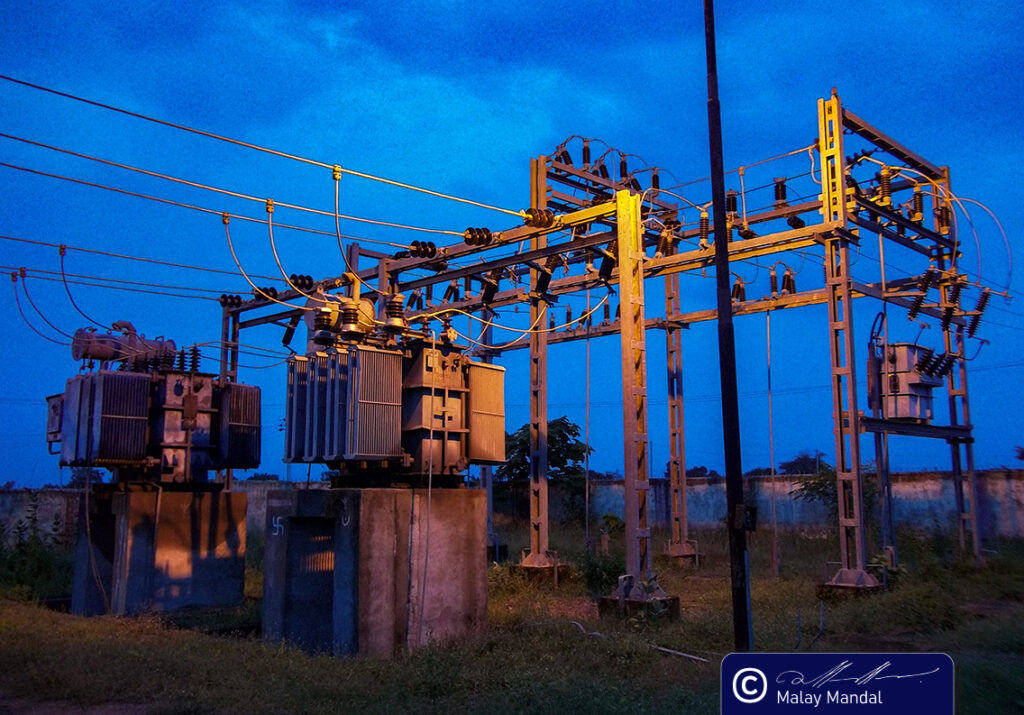
Our first promotions were due in 2005 and as a youngster in my mid 20s, I was not really concerned about the outcome. One fine morning while I was busy doing a photo-shoot, I received a call on my landline. I answered the call. “Malay, the promotion list has come and you have not been considered this time,” Mukherjee Sir informed. Without thinking an iota about the impact of this on my professional career, I replied, “That’s absolutely fine Sir, it is not high on my priority list!” While no one from the HR department even thought of informing this, Mukherjee Sir had the courage to speak straight without sugar coating harsh things. His reason for personally calling up and breaking the news was to immunize me from the sudden shock of getting the news from anyone else. It was extremely rare to find such sensitivity from an officer of such statute and standing.
Mukherjee Sir always treated people at par, irrespective of their social, regional, economical and regional backgrounds. He had a deep knowledge of people and cultures. Our batchmate Rakesh Kumar, who was from Rohtak in Haryana was named as “Chaudhary” by Mukherjee Sir. It became immensely popular amongst office colleagues. Mukherjee Sir was exceptionally good at spotting talent; he could gauge potential of any individual or group of individuals, not merely of the present status, but also the future possibilities. His analyses would encompass not only the current standing but also delve deep into the struggles undertaken by the assessed. While people love to criticize, make fun of people coming from humble backgrounds, Mukherjee Sir always lent his helping advice in a constructive and positive way. From an office boy to an engineer, his approach remained the same. Despite his position and work load, he was always approachable – at all times for all of us.
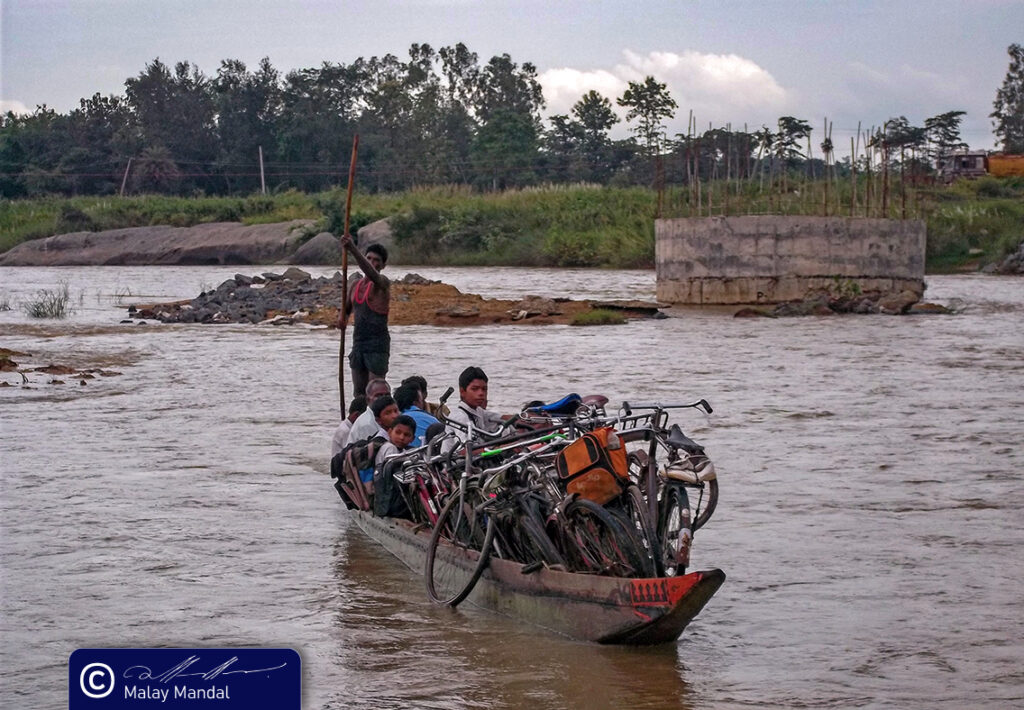
In addition to his compassionate nature, Mukherjee Sir had an intense personality; a well-read, intellectual with a sharp analytic mind and elephantine memory. His professional conduct was quite like his personality – thoroughly involved, immensely intimate, and unimaginably informative. He would invariably brief and not merely mark papers to his colleagues and subordinates. Completeness of knowledge in minutest detail had made Mukherjee Sir an assertive orator taking everyone in his stride. Running around the subject was never his cup of tea; he would come to the crux quickly, and convincingly. I admired Mukherjee Sir for his immaculate grip over the English language; I learned immensely while working with him. He always awed me with his vocabulary and precise use of words. The perfectionist linguist in him once made me run through dictionaries and Thesaurus to find a suitable word. I still remember the word he finally chose – Predicament – that made me overstay at the office for over an hour. Many others tried to imitate the all-encompassing style of Mukherjee Sir, but they could hardly match his flamboyance, intelligence, and above all humility.
My professional relationship with Mukherjee Sir lasted over a decade and had its own share of conflicts. Despite the ups and downs, I developed a deep respect for him; he became and remained my favorite throughout my professional life spanning two decades. Opinions can differ, but we must remain open to hear from others. I learnt this mantra from Mukherjee Sir. Personally, I never believed in a calculated risk-free life, instead always opted for adventure, both in my personal and professional spheres. I explored possibilities beyond my professional world and never felt comfortable in a comfort zone. While others compromised, I believed in accepting the lemons (and turning them into lemonades) as no one teaches us better than adversity. Once we had a disagreement and I was upset. Mukherjee Sir called and counseled me as his own son, “Malay, now you are young and are bound to take decisions hastily. Don’t take things for granted! Later in your life you will realize how ruthless bosses can be?”
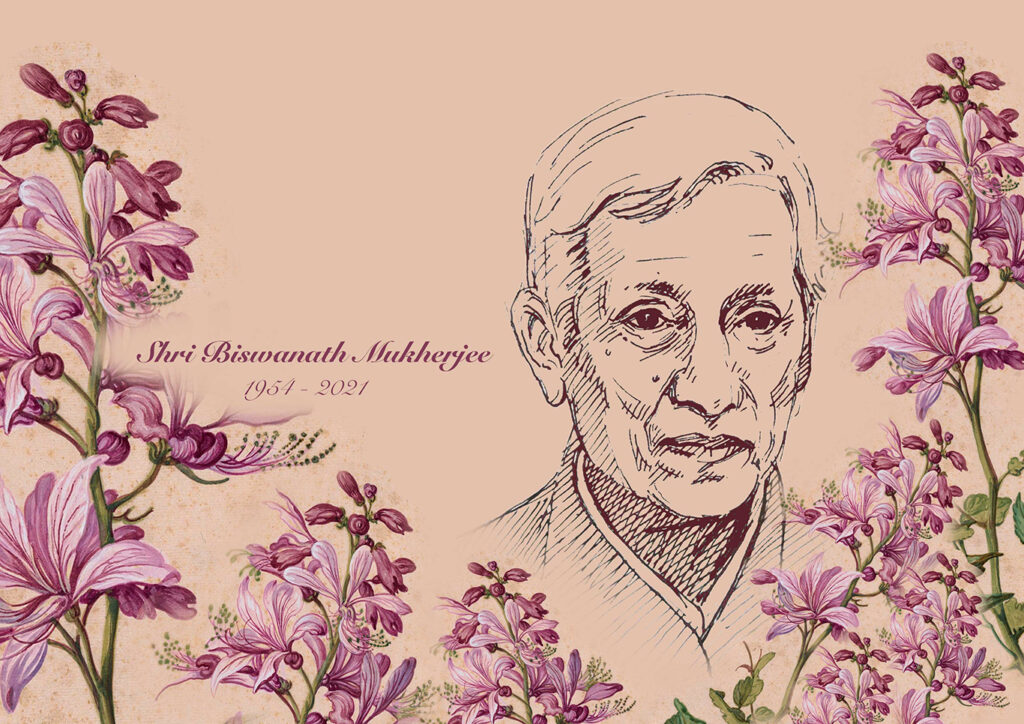
Contrary to his sharp image of intellect, Mukherjee Sir had an unimaginable sense of humor. Delivered with a soft smile, his dialogues caused an uproar. With dollops of good sarcasm and behavioral observation, Mukherjee Sir knew each of us individually. The instance goes back to 2003 when we were in the headquarters. Post lunch it was usually in practice to take a stroll around the office complex. It was a wintery afternoon when we gathered near a shack selling locally made confectionaries about to buy a round pan of Chikki. Suddenly the seniors appeared from nowhere. Apprehending the situation, Mukherjee Sir proclaimed, “I am the BUH (Business Unit Head), I am only authorized to acquire circles, how can you even think of doing so?” Another instance that comes to my mind is related to my habit of drinking water before calling off the day. “It is 05:30 for sure, Malay is drinking water!” His words would make everyone laugh.
Later in my professional life, I moved to a different department while Mukherjee Sir was heading the whole project. Many times, whenever he wanted to understand something in detail, he would call me and discuss things at length. I still feel good that he counted me amongst his trusted ones. Whenever he sensed something suspicious, he would ask me to investigate and take lead. In 2013, after a decade of service at headquarters, I left for a remote location construction site. It was a paradigm change both in terms of work culture and people. There I realized how important it is to have a good mentor? Although we never met personally after 2013, his teachings have guided me through the tumultuous times of my professional life. Even when I am writing this, I can sense someone smilingly gazing at me. I can feel his benevolence as Mukherjee Sir was more than a mere mortal human being. He was and shall remain to be an undiminishing aura of care and compassion.